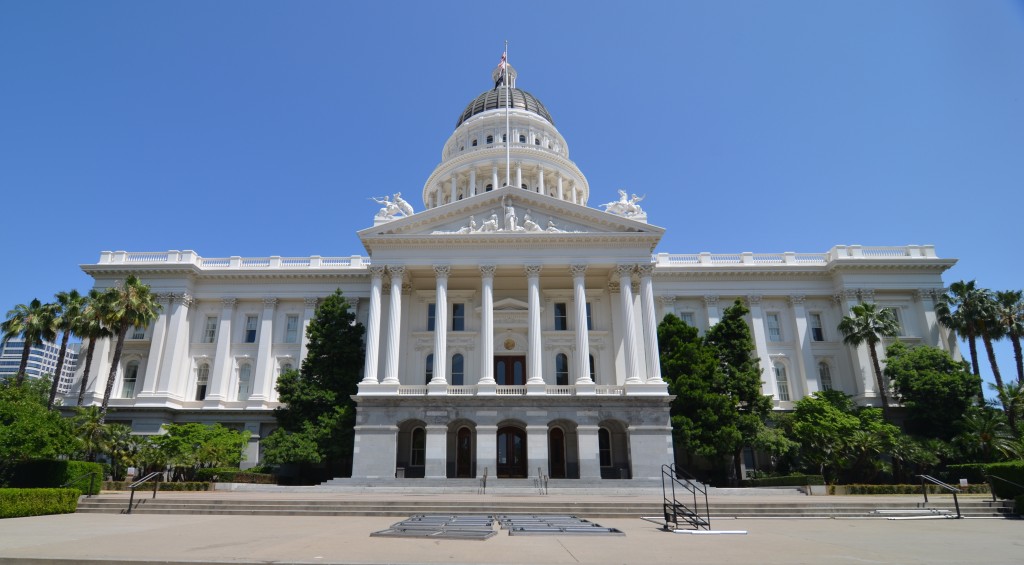
California Bill That Will Undermine Religious Colleges: Amended but not Better
Stanley Carlson-Thies, July 8 2016
SB 1146, with the stated aim of stamping out supposed discrimination in California higher education, is slowly making its way through the state legislature and now has been amended yet again. Even though its content has been radically changed in Assembly committee action, it is no less damaging to religious higher education in the state than when it was adopted by the Senate on May 26, 2016.
The bill now has two major features. The first is a requirement for any California higher education institution that has a religious exemption from the federal Title IX law to broadcast that exemption to prospective students, to faculty and staff, to any visitor to campus, and also, via a new public shaming listing on a California Student Aid Commission website, to the public. The federal Department of Education already operates its own webpage calling out exempted institutions.
Title IX is the federal law that prohibits any educational program that receives federal assistance from discriminating on the basis of sex—with “sex” now defined by the federal government to encompass gender identity and sexual orientation. Title IX has a procedure so that religious educational institutions can maintain their religion-based standards about sex, but the act of claiming that independence now subjects the institution to being listed on the federal website as a suspect institution; if SB 1146 passes, the institution will also be listed on a California website.
The other major feature of SB 1146 is to eliminate the independence of religious higher education institutions from the provision in California education law that prohibits institutions receiving any state funding (indirectly, via California state scholarships, or directly) from selectivity on any of many grounds, including not only sexual orientation but also religion. A narrow exemption would remain for seminaries and other institutions that teach religion. In other words, religious liberal arts colleges would lose their existing independence from this broad nondiscrimination requirement.
As exempt institutions, California religious higher education institutions have been free to maintain policies promoting conservative sexual morality, which typically means having a morally conservative code of conduct that students, faculty, and staff agree to observe if they choose the institution, whatever their sexual orientation. No evidence has been presented that these institutions treat LGBT students poorly (nor, indeed, that anyone can be unaware of the various institutions’ policies about human sexuality). The loss of this independence would make these policies and practices suspect and would newly expose the institutions to lawsuits from aggrieved students.
Note that the existing law, from which the religious colleges and universities have been exempt, bans selectivity on the basis of religion. What will be the consequence when religious colleges are banned from “discriminating” on the basis of religion? No more screening of applicants for faculty positions to ensure that they are committed to the institution’s foundational religious values? No more chapel, dorm Bible studies, or religious emphases in classes, lest some student decide that the campus environment is hostile to her atheist convictions? The bill does say that religious colleges will be able to enforce “religious practices” as long as these practices apply to every student. However, it is not clear how this provision interacts with the newly applicable general prohibition of religious discrimination.
As recently amended, the bill does bend a bit toward the faith convictions of the religious colleges and universities. It now says that, notwithstanding the nondiscrimination provisions, a religious institution may maintain separate male and female housing and restrooms and also separate housing for married students—but only if it construes “male” and “female” to encompass transgender students and interprets “married” to include same-sex couples.
If SB 1146 becomes law, many religious colleges and universities in California, in order to maintain policies and practices they regard as central to their identity, may have to choose to forgo all state support, including the ability to accept students with state scholarships. This means a dramatic downsizing and becoming too pricey for many low-income students. Or they may decide they must suppress or abandon policies and practices they have regarded as important. Either way, California higher education will become less diverse, and the California Constitution’s guarantee of the “free exercise and enjoyment of religion without discrimination or preference” (Art. 1, Sec. 4) will have been proven more hollow than expected.
